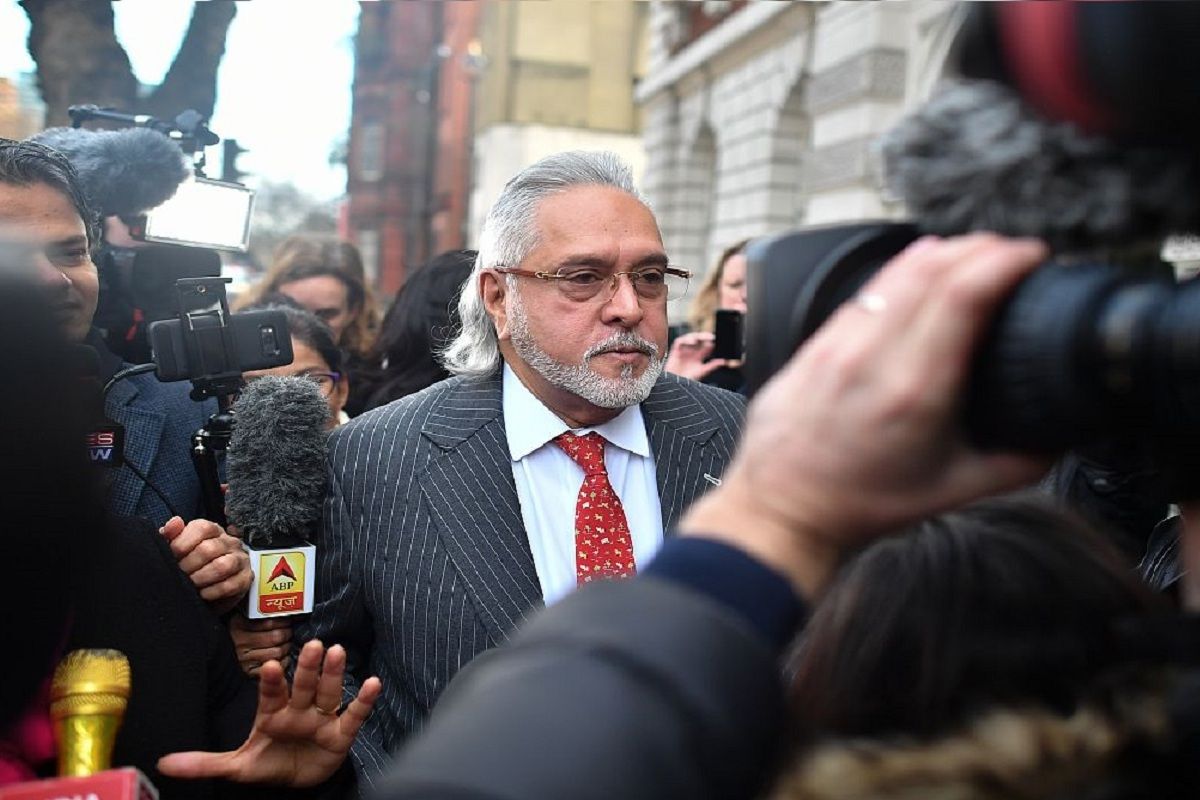Rs 14,131.6 cr recovered from sale of Vijay Mallya’s assets: Sitharaman
The Finance Minister informed the Lok Sabha that the Enforcement Directorate (ED) has been successful in recovering assets from several high-profile economic offenders.
A consortium of 13 banks, led by the State Bank of India, has initiated loan recovery proceedings against him in a special court in Mumbai under the Fugitive Economic Offenders Act.

File photo of Vijay Mallya at Westminster Magistrates Court in central London. (Photo: AFP)
The UK High Court on Tuesday allowed Indian business tycoon Vijay Mallya, charged with fraud and money-laundering back home, to appeal against his extradition to India, local media reported.
Mallya, whose extradition order had been upheld by the Westminister Magistrates’ Court last year and his appeal against it rejected earlier this year, had moved the High Court in a last-ditch bid to stop against being sent to India.
Advertisement
According to the reports, had his appeal failed, he would have been on his way back home shortly.
Advertisement
In the hearing on Tuesday, his lawyer Clare Montgomery argued that Mallya was being targeted on political considerations and had been “deliberately set up as a lightning rod of public anger at India’s bad debt”. It was unlikely he would get a fair trial in these circumstances, she added.
She also argued that Chief Magistrate Emma Arbuthnot, who had cleared Mallya’s extradition last year, had made “very serious errors of fact and law”.
The 63-year-old Mallya, chairman of now defunct Kingfisher Airlines, left India on March 2, 2016 after defaulting on loans amounting to Rs 9,000 crore. He has repeatedly denied fleeing, and said that he is ready to pay back the money he owed to the Indian banks.
India had in 2017 filed for Mallya’s extradition.
A consortium of 13 banks, led by the State Bank of India, has initiated loan recovery proceedings against him in a special court in Mumbai under the Fugitive Economic Offenders Act.
The Enforcement Directorate had also moved the Special Prevention of Money Laundering Act Court last year to get Mallya declared a “fugitive economic offender” and confiscate his properties, estimated at more than Rs 12,000 crore, making it the first such case of its kind under the new law.
Advertisement